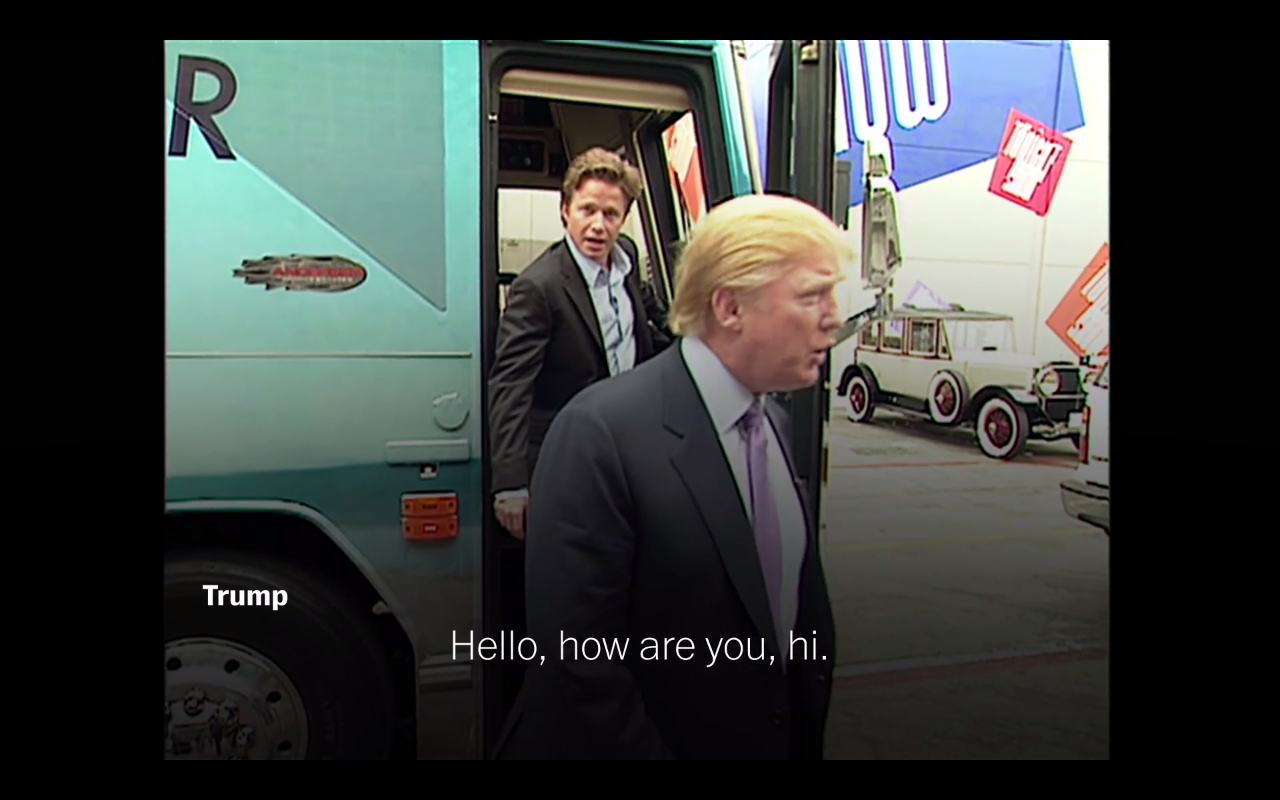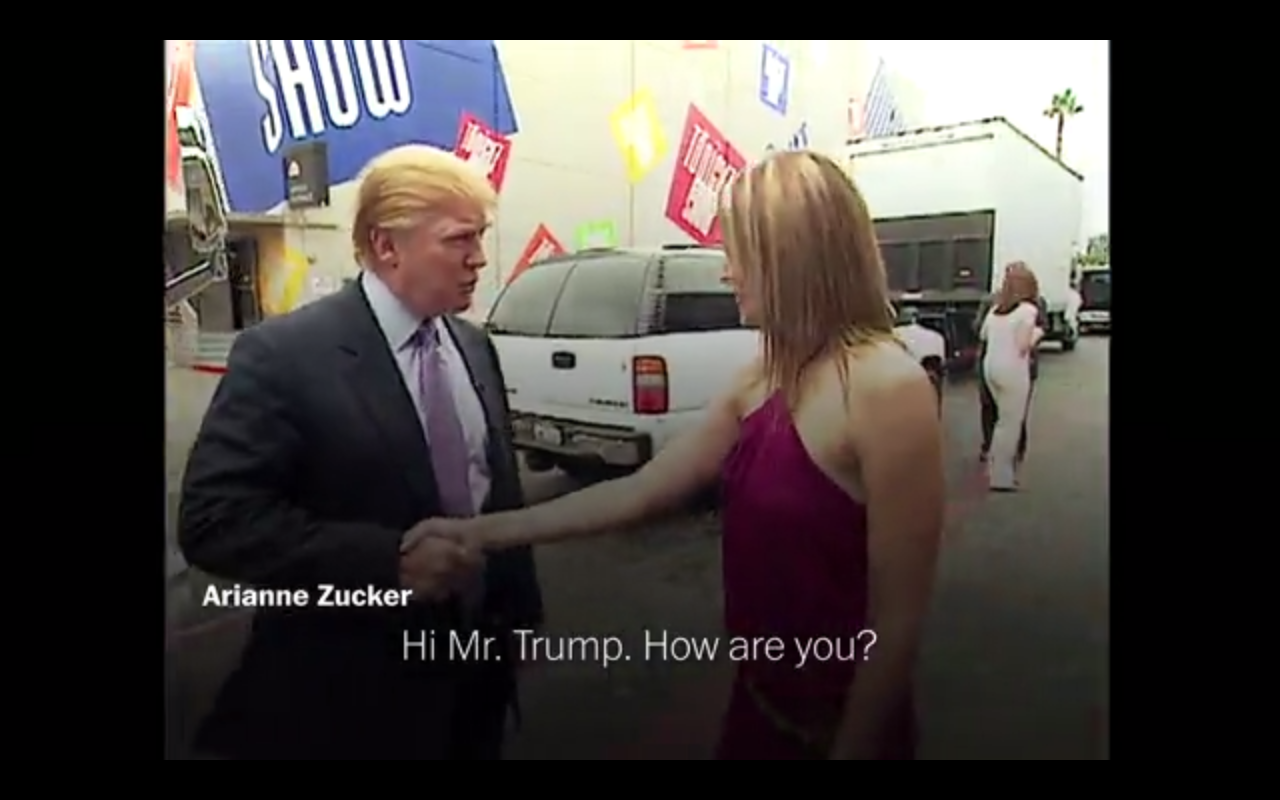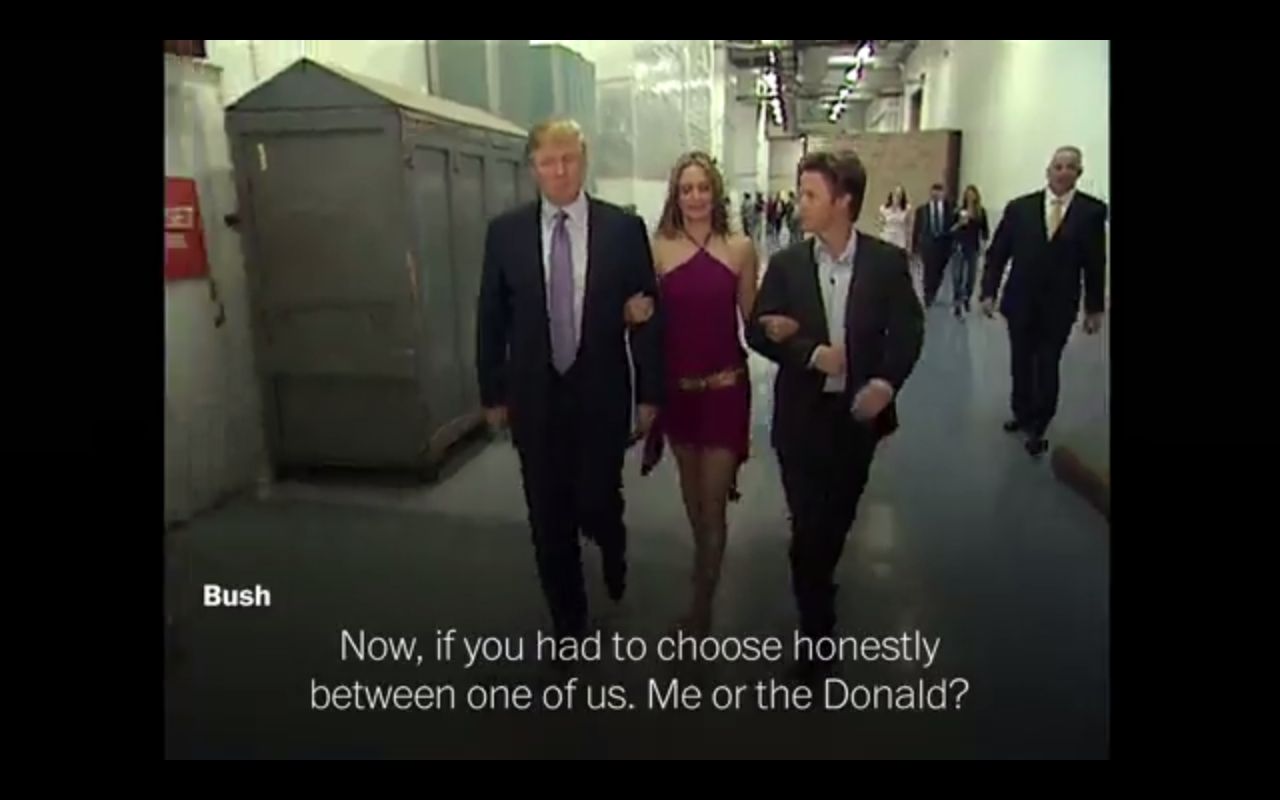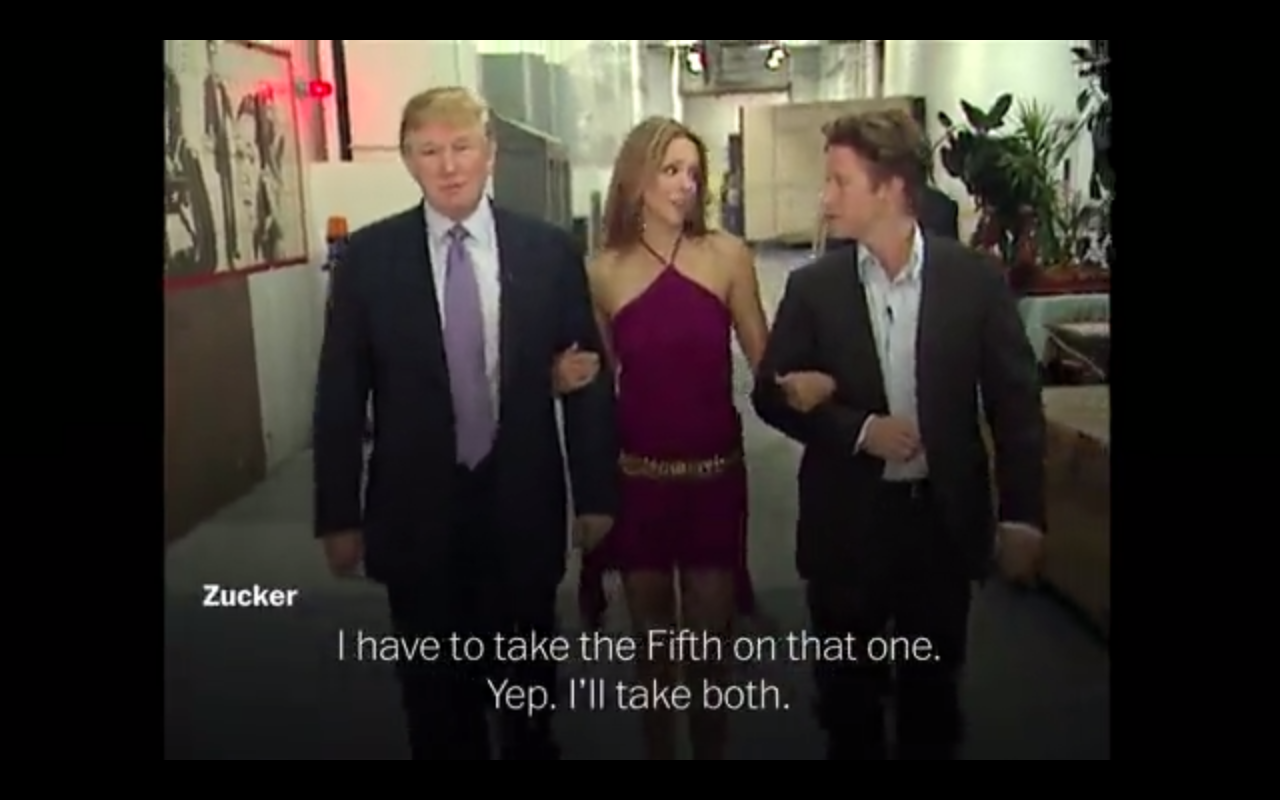Up until about 6 PM yesterday, I hadn't actually seen the video of Donald Trump's comments to Billy Bush on the Access Hollywood bus. I'd only read the articles that pulled out his major talking points about how he can do whatever he wants with women because he's "a star," including that he would be allowed to "grab (women) by the pussy."
(I typed that word out on purpose, because I think it's important to see it written out the way he said it. He didn't say it with an asterisk in place of the vowel. He said the whole word, out loud. I'm going to say it again later, so fair warning.)
But last night, I did see the video. It's a very different experience from reading the words in print. The major difference for me in watching the video vs. reading the article was that I got to actually see the woman in the purple dress - the woman who Trump and Bush were talking about.
I don't want to talk any more about Donald Trump, aside from naming him as a player in this story. He is a disgusting person whose very presence in this race should make America hide its face. People die trying to obtain democracy in their respective countries -- we have it, and we've made it into a reality show this year. We should be ashamed of ourselves.
But like I said -- enough about Trump.
I want to talk about the woman in the purple dress - Arianne Zucker.
I don't know Zucker, and I can't speak for her. But I can imagine what I would've been thinking had I been in her shoes.
I assume that she was there as a cast member of the soap opera that Trump was guest starring on. She was probably walking Trump and Bush into the facility and touring them around, so that Access Hollywood could do a spot on Trump's soap opera appearance.
Immediately upon meeting these guys, she shakes their hands and greets them. It doesn't take long for her to be prompted to hug Donald Trump, then to hug Billy Bush.
The three of them begin walking into the studio, at which point Bush comments on Zucker's good looks. He follows up by insisting that Zucker answer the hypothetical of Which Man She'd Want To Date. She pleads the Fifth. At this point, Zucker has positioned herself between the two men and has taken their arms.
If I had been Zucker, I don't know that I would've done any of that any differently. She's there to be a hostess, to create a package for a television show. Because of that, her personality needed to be dynamic, affable, charming. She delivered on all those counts. She even delivered in the face of two guys who literally did nothing but talk about her beauty and her availability to date them - who treated her as a beautiful accessory rather than a person. She was doing her job. She was being a professional.
If I had been in her shoes, I would've been a little skeeved out by the way I'd been treated, but I also would've assumed that these guys were just being a bit too flirty for the sake of the cameras. I would have assumed that they, too, were trying to create an interesting package for Access Hollywood by trying to be funny and larger-than-life, even if it did mean that they were being inappropriate.
If I'd assumed the best in them - that they were pouring it on thick for the sake of the TV audience - then I would've been able to leave that interaction a little grossed out, but unscathed.
Imagine what it must have felt like for her to see these tapes.
To hear a man pop Tic Tacs in case he spontaneously, and without consent, started kissing you. To hear someone who you'd treated with (relative) respect and professionalism talk about grabbing you by the pussy.
I'm not her, and even a decade later, a feeling of disgust and alarm washes over me. The moment that those two men step off the bus, their tones change. They switch into "professional" (or at least, their best attempts at professional) mode. They leave behind their disgusting chatter and fake respect for Zucker, who had no way of knowing what was said about her mere seconds before.
It is horrific. It is also something that happens every single day.
Women deal with a lot of this. We are regularly objectified (in ways big and small, in ways we know and ways we don't) by the men in our lives. Many times, rather than speak up, we, too, remain dynamic, affable, and charming -- we keep our cool and choose not to rock the boat so that we can continue to go about our day. Because it's much easier to just "go with the flow;" if we spoke up at every instance of objectification, our days would be consumed with it.
I am definitely a glass half full, rose colored glasses member of society. My impulse is to assume that people's motives are pure; that people's actions represent their true feelings. Of course, this isn't always the case. I know that. I'd just rather give people the benefit of the doubt.
But watching a video like that one, as a woman, is terrifying to me. What that video proves is that there are men in the world - both men who are famous and men who are not - who degrade and dehumanize women behind closed doors, then feign respect for them in person. It shakes me to my core to know that men like this exist.
And it makes the concept of assuming the best in men who push the boundaries appropriateness not just naive, but dangerous.
I've heard this behavior defended as "locker room talk." I've heard it dismissed. I've heard people say that those offended by it need to grow a thicker skin; that these men were just joking, that this is how men speak to each other. It's harmless. It's nothing.
It's not nothing.
Women, every day, are attempting to simply live our lives. We are stopping for gas. We are raising children. We are crossing the street. We are grocery shopping. We are leading business meetings. We are going for a run. And all the while, we have to stay mentally present - we have to consider a range of things, from "Why is he staring at my legs while I'm talking?" and "Should I address the person who just catcalled me?" to, "Should I go on a run with one headphone in and one headphone out in case someone is approaching me and I don't hear them?" and, "Did I leave my pepper spray in the car?"
It is not safe to let down our guards unless we are with men we trust implicitly - our good friends, our brothers, our husbands, our fathers. And for some women - it chokes me up to write this - there is no safe place.
I want to close by stating my point as clearly as I can: If you are a man, and your impulse is to defend or dismiss the comments that these men made (maybe because you've heard similar comments made by your friends or have made comments like those yourself), stop. Don't.
We've all made mistakes and said things we shouldn't have. We're humans. We're flawed.
But this? This is not a flaw we have time to entertain. This isn't something that you can take your time fixing. This is time-sensitive. You are making women feel unsafe. Worse, you are making it actually unsafe for us to interact with the world. You are making us fear for our PHYSICAL SAFETY by saying things like this. Can you imagine what that's like for us??
Men: feminism doesn't mean that you worship at the altar of Lena Dunham and that you've got a Hillary Clinton bumper sticker on your car. It doesn't make you a radical. It doesn't mean you are a flaming liberal communist. Feminism means that you believe that women should be treated, paid, and considered equally alongside men. It means that you know in your bones that women are as smart and as worthy as you are. It means that how women are treated is important to you - not because we are your wives, your daughters, your sisters, your girlfriends. No. Because we are on this planet as human beings. Because we are people.
I haven't been objectified on national television like Arianne Zucker was; like Hillary Clinton has been. But I have been asked to a party - a party I was so flattered to get asked to - by a guy who I later found out bragged behind closed doors that he was only taking me because he thought I had a "nice ass." I have overheard someone suggest to my husband that I seemed like "a handful in the sack." I have been relentlessly catcalled and followed by cars driven by men.
And if you are a woman, I bet you have, too.
If you are a man, find a woman in your life to talk to - not in passing, but in a real, meaningful way - about how this video made them feel. About instances in their lives when they've been made to feel unsafe by the fact that a man feels entitled to openly sexualize them.
To close this with some hope, I'm including a text message that I got from my father last Friday. He sent it to me, my grandmother, my mom, his sister, and my brother's girlfriend, Emily. Let's use this horrible, viral video to start conversations about being better to each other.
My dad will start.










